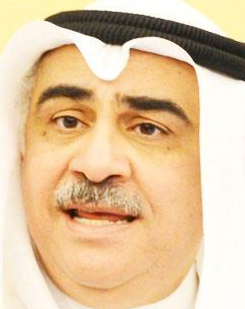Riyadh, Jun 6: There has been an 80 percent decrease in the number of MERS coronavirus cases during the past six weeks due to the preventive measures, Acting Health Minister Adel Fakeih has told the Shoura Council.
 Fakeih enumerated the measures taken by the Ministry of Health in coordination with all local and global agencies and the ministry of agriculture. He said that the same efforts would be further intensified during the Umrah and Haj season to have the disease under control in the Kingdom.
Fakeih enumerated the measures taken by the Ministry of Health in coordination with all local and global agencies and the ministry of agriculture. He said that the same efforts would be further intensified during the Umrah and Haj season to have the disease under control in the Kingdom.
“The ministry will be able to ensure proactive and swift action against future public health challenges, such as MERS-CoV through continuous coordination and monitoring. Topnotch clinicians, scientists, researchers and health care and emergency planning experts will work for a new health Command and Control Center (CCC).
The CCC will ensure that health challenges are managed with a systematic, holistic and comprehensive approach.
The center currently has 11 platforms, each of which is tasked with a specific topic, all under the coordination of the control tower platform.
“We have now documented every single MERS case that occurred in the Kingdom since September 2012,” the minister said, pointing out that so far 689 cases have been reported including 283 deaths. A total of 53 patients are under treatment and 353 have recovered from the illness.
He said the summer season would not aggravate the spread of the disease in the Kingdom. However, he added that concerted efforts must be made by people to observe personal hygiene to cover their noses while sneezing and coughing. He said the ministry is in the process of gearing up its 500 hospitals to meet the health challenges in the country.
Meanwhile, researchers have found the first direct evidence that the virus jumps directly from camels to humans.
The latest findings in the New England Journal of Medicine are based on a 44-year-old Saudi man who kept a herd of nine camels and who died of MERS in November 2013.
His friends said they witnessed him applying a topical medicine to the nose of one of his ill camels — four of them were reportedly sick with nasal discharge — seven days before he himself became stricken with MERS.
Researchers sequenced the virus found in one of the sick camels and the virus that killed the man, and found that their genomes were identical.
“These data suggest that this fatal case of human MERS-CoV infection was transmitted through close contact with an infected camel,” said the study led by Tariq Madani at the department of medicine, King Abdulaziz University in Jeddah.
Previous research has suggested that the virus has been quite common in camels for at least the past 20 years, and was likely making the jump into humans.





Comments
Add new comment